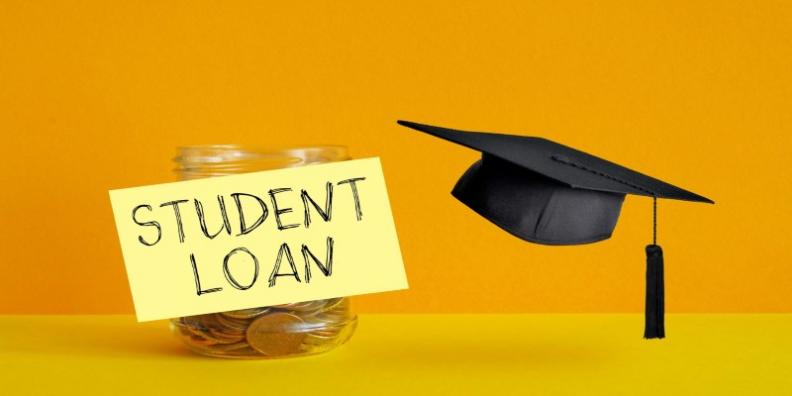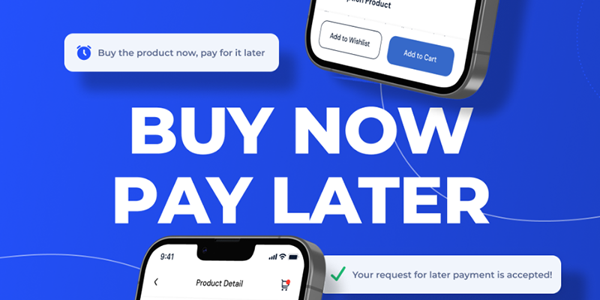7 Best Loan Options For First-Time Borrowers
Taking out a loan for the first time can feel overwhelming. With so many options available, how do you know which is right? Whether you need money for a car, college, home, or personal expenses, choosing the right loan can save you money and set you up for financial success.
To help you navigate the process, here's a breakdown of the best loan options for first-time borrowers and key factors to consider before applying.
Personal Loans – Flexible And Versatile
Personal loans are one of the most common options for first-time borrowers. They can be used for almost anything: medical expenses, home improvements, weddings, or consolidating high-interest debt.
Why Choose a Personal Loan?
No Collateral Required
Most personal loans are unsecured, meaning you don’t need to put up an asset like a car or home.
Fixed Interest Rates
Your monthly payments remain predictable, making budgeting easier.
Variety Of Lenders
Banks, credit unions, and online lenders offer personal loans with different terms.
Who It’s Best For
First-time borrowers who need funds for personal expenses and prefer a straightforward loan structure.
Credit Builder Loans – Improve Your Credit While Borrowing
If you have little to no credit history, a credit builder loan can help establish your credit while allowing you to borrow a small amount. Unlike traditional loans, the lender holds the borrowed amount in an account until you’ve made all your payments.
Why Choose a Credit Builder Loan?
Helps Establish Or Improve Credit
Payments are reported to credit bureaus, which builds your credit score.
Encourages Savings
You'll receive a lump sum since the lender holds the loan amount until it's fully paid.
Lower Borrowing Amounts
Typically, it ranges from $300 to $1,000, making it manageable for first-time borrowers.
Who It’s Best For
Borrowers with no credit history or low credit scores who want to build their credit while borrowing a small amount.
Student Loans – Ideal For Education Financing
If you need financial assistance for college, federal student loans are often the best option. These loans offer lower interest rates and more flexible repayment options than private loans.

Why Choose a Federal Student Loan?
Lower Interest Rates
Government-backed loans have lower rates compared to private lenders.
No Credit Check Required
Most federal student loans don’t require a credit history, making them perfect for first-time borrowers.
Flexible Repayment Plans
Options include income-driven repayment and loan forgiveness programs.
Who It’s Best For
Students and first-time borrowers who need financial assistance for higher education.
Auto Loans – Financing Your First Car
If you need a car but don’t have the cash to pay upfront, an auto loan can help you finance your purchase. Auto loans are either secured (backed by the car) or unsecured, with secured loans typically offering lower interest rates.
Why Choose an Auto Loan?
Lower Interest Rates On Secured Loans
Using your car as collateral can reduce borrowing costs.
Flexible Terms
Loan durations range from 24 to 72 months, allowing you to choose a repayment period that fits your budget.
Builds Credit
Making on-time payments helps establish a positive credit history.
Who It’s Best For
First-time borrowers looking to finance their first car purchase with manageable monthly payments.
Secured Loans – Lower Interest Rates For First-Time Borrowers
A secured loan may be a good option if you don't have a credit history. These loans require collateral, such as a savings account, car, or home, which reduces the lender's risk.
Why Choose a Secured Loan?
Lower Interest Rates
Because an asset backs the loan, lenders offer lower rates.
Easier Approval
If you lack credit history, offering collateral improves your chances of approval.
Higher Borrowing Limits
Lenders may be willing to offer more significant amounts compared to unsecured loans.
Who It’s Best For
Borrowers who need a loan but have limited credit history and can provide collateral.
Peer-To-Peer (P2P) Loans – Alternative Online Borrowing
For first-time borrowers who struggle to qualify for traditional loans, peer-to-peer lending platforms offer an alternative. These online platforms connect borrowers directly with investors willing to fund loans.
Why Choose a P2P Loan?
Easier Approval Process
Some platforms have more relaxed credit requirements than banks.
Competitive Interest Rates
Rates depend on your credit profile but can be lower than those of credit cards.
Fast Funding
Approval and disbursement can happen within a few days.
Who It’s Best For
First-time borrowers looking for an alternative to bank loans, especially if they have difficulty qualifying elsewhere.
Buy Now, Pay Later (Bnpl) Loans – Short-Term Installments
If you need to make a small purchase but don't want to use a credit card, buy now, pay later (BNPL) services like Affirm, Afterpay, or Klarna offer interest-free instalment plans.

Why Choose BNPL Loans?
No Interest (If Paid On Time)
Many BNPL options don't charge interest if you make payments on time.
Fast Approval
Applications are quick, with no hard credit check required in most cases.
Flexible Payment Options
Pay in instalments without taking on long-term debt.
Who It’s Best For:
First-time borrowers making small purchases who want to avoid credit card interest.
How To Choose The Right Loan For You
With so many options, selecting the right loan depends on your needs, credit history, and financial situation. Before applying, consider the following:
Assess Your Loan Purpose
Are you borrowing for education, a car, or personal expenses? Choosing the right loan type ensures you get the best terms.
Check Your Credit Score
Your credit score affects loan approval and interest rates. If your score is low, consider credit-building loans before applying for larger loans.
Compare Interest Rates
Lenders offer different rates based on your creditworthiness. Always compare multiple lenders before committing.
Look At the Repayment Terms
Shorter loan terms mean higher monthly payments but less interest over time, while longer terms lower payments but increase total costs.
Avoid Taking On Too Much Debt
Only borrow what you can comfortably repay. Overextending yourself financially can lead to missed payments and credit damage.
Which Loan Option Is Right For You?
First-time borrowing doesn’t have to be complicated. Whether you need a personal loan, student loan, auto loan, or credit-building option, understanding your choices helps you secure the best terms.
Take the time to compare lenders, improve your credit score, and choose a loan that aligns with your financial goals. You'll set yourself up for successful borrowing and a strong financial future with the right approach.


